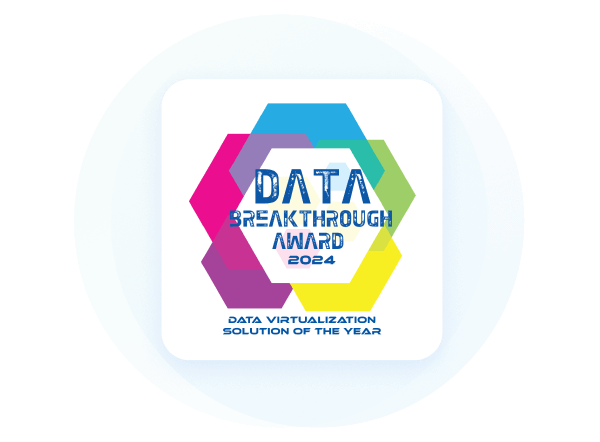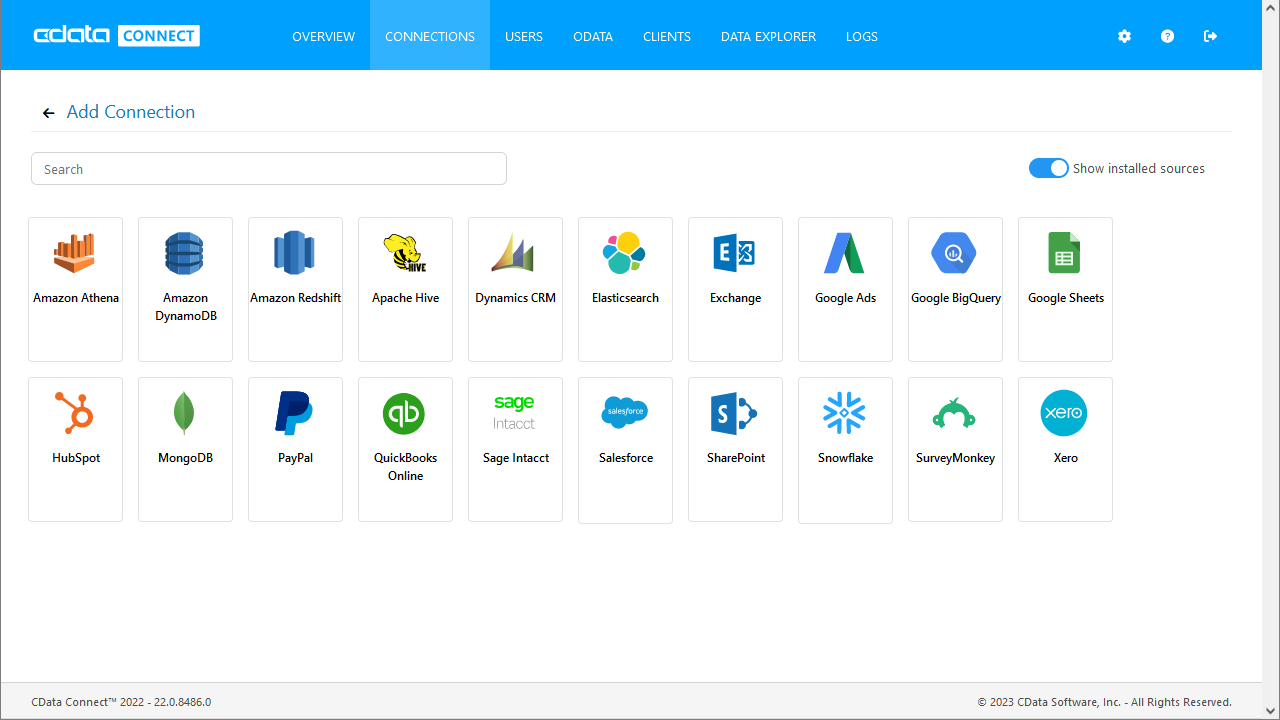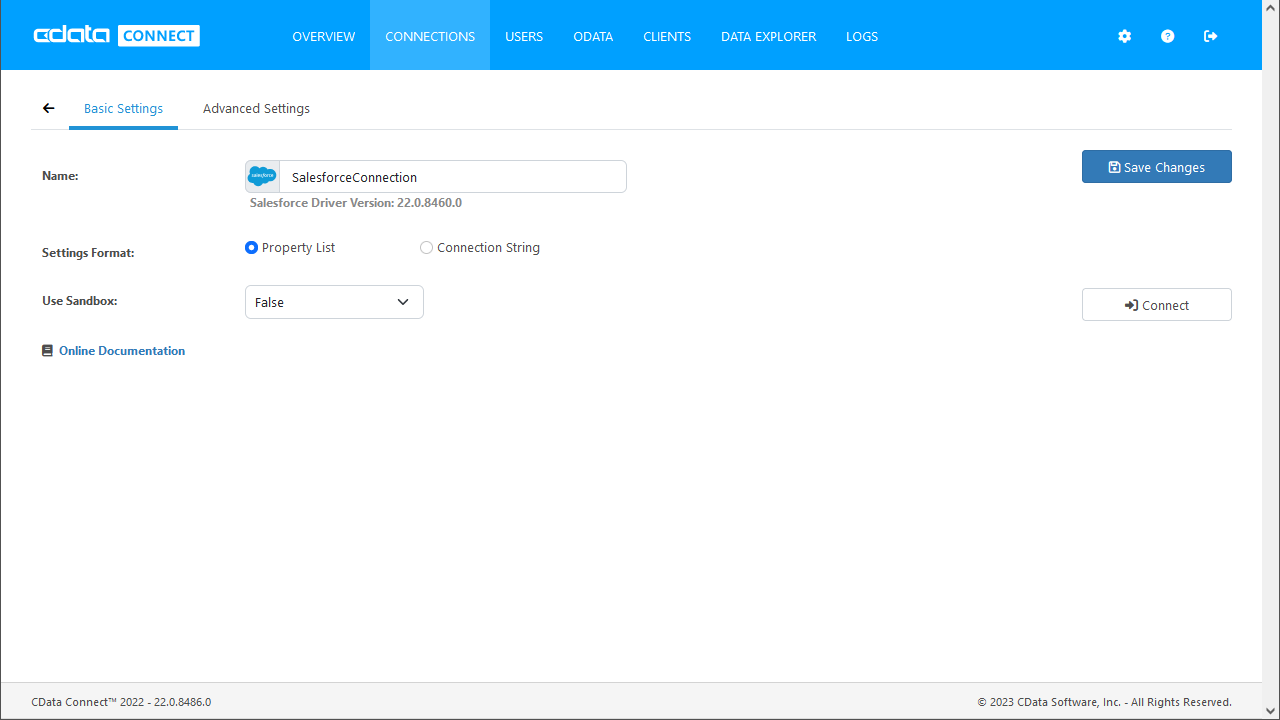Discover how a bimodal integration strategy can address the major data management challenges facing your organization today.
Get the Report →Query IBM Cloud Object Storage Data as a SQL Server in Node.js
Execute SQL Server queries against IBM Cloud Object Storage data from Node.js.
You can use CData Connect Server to query IBM Cloud Object Storage data through a SQL Server interface. Follow the procedure below to create a virtual database for IBM Cloud Object Storage in Connect Server and start querying using Node.js.
CData Connect Server provides a pure SQL Server interface for IBM Cloud Object Storage, allowing you to easily build reports from live IBM Cloud Object Storage data in Node.js — without replicating the data to a natively supported database. As you build visualizations, Node.js generates SQL queries to gather data. Using optimized data processing out of the box, CData Connect Server pushes all supported SQL operations (filters, JOINs, etc) directly to IBM Cloud Object Storage, leveraging server-side processing to quickly return the requested IBM Cloud Object Storage data.
Create a Virtual SQL Server Database for IBM Cloud Object Storage Data
CData Connect Server uses a straightforward, point-and-click interface to connect to data sources and generate APIs.
-
Login to Connect Server and click Connections.
![Adding a connection]()
- Select "IBM Cloud Object Storage" from Available Data Sources.
-
Enter the necessary authentication properties to connect to IBM Cloud Object Storage.
Register a New Instance of Cloud Object Storage
If you do not already have Cloud Object Storage in your IBM Cloud account, follow the procedure below to install an instance of SQL Query in your account:
- Log in to your IBM Cloud account.
- Navigate to the page, choose a name for your instance and click Create. You will be redirected to the instance of Cloud Object Storage you just created.
Connecting using OAuth Authentication
There are certain connection properties you need to set before you can connect. You can obtain these as follows:
API Key
To connect with IBM Cloud Object Storage, you need an API Key. You can obtain this as follows:
- Log in to your IBM Cloud account.
- Navigate to the Platform API Keys page.
- On the middle-right corner click "Create an IBM Cloud API Key" to create a new API Key.
- In the pop-up window, specify the API Key name and click "Create". Note the API Key as you can never access it again from the dashboard.
Cloud Object Storage CRN
If you have multiple accounts, you will need to specify the CloudObjectStorageCRN explicitly. To find the appropriate value, you can:
- Query the Services view. This will list your IBM Cloud Object Storage instances along with the CRN for each.
- Locate the CRN directly in IBM Cloud. To do so, navigate to your IBM Cloud Dashboard. In the Resource List, Under Storage, select your Cloud Object Storage resource to get its CRN.
Connecting to Data
You can now set the following to connect to data:
- InitiateOAuth: Set this to GETANDREFRESH. You can use InitiateOAuth to avoid repeating the OAuth exchange and manually setting the OAuthAccessToken.
- ApiKey: Set this to your API key which was noted during setup.
- CloudObjectStorageCRN (Optional): Set this to the cloud object storage CRN you want to work with. While the connector attempts to retrieve this automatically, specifying this explicitly is recommended if you have more than Cloud Object Storage account.
When you connect, the connector completes the OAuth process.
- Extracts the access token and authenticates requests.
- Saves OAuth values in OAuthSettingsLocation to be persisted across connections.
![Configuring a connection (SQL Server is shown).]()
- Click Save Changes
- Click Privileges -> Add and add the new user (or an existing user) with the appropriate permissions.
With the virtual database created, you are ready to connect to IBM Cloud Object Storage data from Node.js.
Query IBM Cloud Object Storage from Node.js
The following example shows how to define a connection and execute queries to IBM Cloud Object Storage with the SQL Server module. You will need the following information:
- Host name, or address, and port: The address of your Connect Server instance and the port (1433)
- Username and password: The username and password of a user you authorized on Connect Server
- Database name: The database you configured for IBM Cloud Object Storage (IBMCloudObjectStorage1)
Connect to IBM Cloud Object Storage data and start executing queries with the code below:
const sql = require('mssql');
const config = {
user: 'your_connect_username',
password: 'your_connect_password',
server: 'connect_server_url',
port: 1433, // optional, defaults to 1433
database: 'IBMCloudObjectStorage1',
authentication: {
type: 'default'
},
options: {
encrypt: true
}
}
console.log("Starting...");
connectAndQuery();
async function connectAndQuery() {
try {
var poolConnection = await sql.connect(config);
console.log("Reading rows from the table...");
var resultSet = await poolConnection.request().query(`SELECT * FROM table_name`);
console.log(`${resultSet.recordset.length} rows returned.`);
// output column headers
var columns = "";
for (var column in resultSet.recordset.columns) {
columns += column + ", ";
}
console.log("%s ", columns.substring(0, columns.length - 2));
// ouput row contents from default record set
resultSet.recordset.forEach(row => {
console.log("%s %s", row.CategoryName, row.ProductName);
});
// close connection only when we're certain application is finished
poolConnection.close();
} catch (err) {
console.error(err.message);
}
}
SQL Server Access to IBM Cloud Object Storage Data from Node.js
You have retrieved live IBM Cloud Object Storage Data using Node.js. Now, you can easily access data sources and more — all without replicating IBM Cloud Object Storage data.
To get SQL data access to 200+ SaaS, Big Data, and NoSQL sources directly from your applications, try CData Connect Server.








